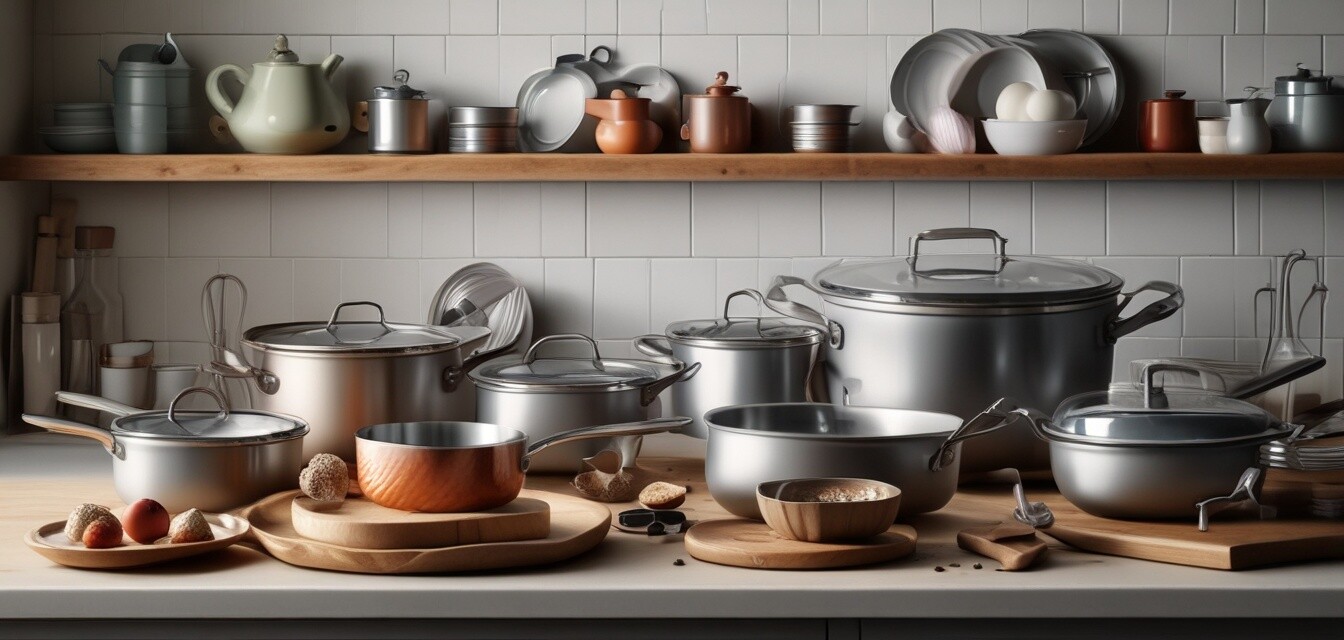
How to choose the best cookware for baking
Key Takeaways
- Understanding different materials is essential for choosing the right cookware.
- Consider the type of bakeware based on the recipe you want to create.
- Mixing and matching cookware can enhance your baking experience.
- Looking for durability and ease of cleaning will benefit long-term use.
- Evaluate the size and shape based on your oven and recipe requirements.
Baking is an art that requires not only the right ingredients but also the right tools. Choosing the best cookware can significantly impact the results of your creations. Whether you are a beginner or an experienced baker, knowing what type of cookware works best for different baking tasks is crucial. This guide will provide you with tips on selecting the right cookware for your baking adventures.
Understanding cookware materials
Cookware comes in various materials, each with unique properties that affect heat distribution, cooking time, and the overall outcome of your baked goods. Below is a table summarizing common baking materials:
| Material | Pros | Cons |
|---|---|---|
| Metal | Conducts heat well, creates browning | Can warp if overheated |
| Glass | Non-reactive, great for monitoring cooking | Can shatter if subjected to extreme temperature changes |
| Silicone | Flexible, easy to clean, non-stick | Can retain odors, not suitable for high heat |
| Ceramic | Great heat retention, aesthetic appeal | Can be heavier and more fragile |
Types of bakeware for different recipes
When it comes to baking, different recipes call for different types of bakeware. Below is a list of common types of bakeware and what they are best suited for:
- Round cake pans: Ideal for layered cakes.
- Sheet pans: Perfect for cookies, roasting vegetables, and sheet cakes.
- Loaf pans: Great for making bread or meatloaf.
- Muffin tins: Best for baking muffins or cupcakes.
- Tart pans: Essential for quiches and tarts.
Mixing and matching bakeware
Sometimes, the best results come from using a combination of different cookware types. For example, you might start a cake in a metal pan for browning, then transfer it to a glass or ceramic dish for a more even bake. Experiment with various combinations to find what works best for you.
Durability and maintenance
When choosing cookware, consider the longevity and maintenance of the material. Investing in durable bakeware can save you money in the long run. Here are some tips for maintaining your cookware:
Tips for keeping your bakeware in top condition
- Always follow the manufacturer's care instructions.
- Use non-abrasive cleaners to avoid scratching.
- Avoid using metal utensils on non-stick surfaces.
- Store bakeware properly to prevent dents or damage.
Size and shape considerations
Ensure the size and shape of your cookware align with your oven’s dimensions and the specifics of your recipe. A larger pan may require adjustments in baking time, so always cross-check with your recipe instructions.
Final thoughts
Choosing the best cookware for baking doesn’t have to be overwhelming. Understanding the different materials, types, and maintenance will help you make informed decisions. For further guidance, check out our buying guides, which offer deep dives into various kitchen essentials.
Explore more related topics
Here are some additional resources to help enhance your cooking journey: